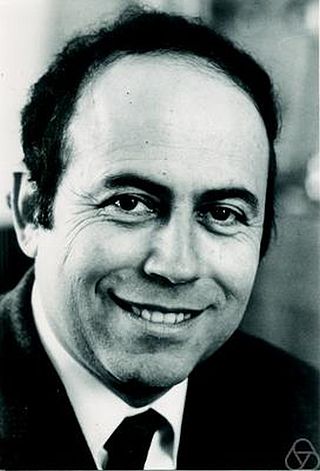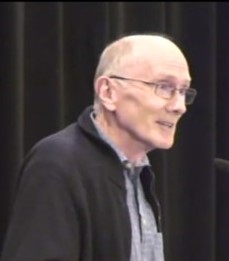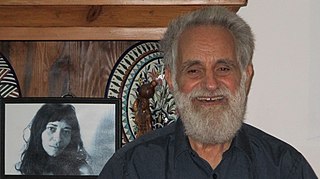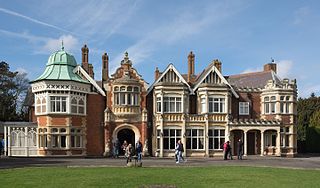
Professor Oron Shagrir (born 1961) is an Israeli philosopher and cognitive scientist.

Professor Oron Shagrir (born 1961) is an Israeli philosopher and cognitive scientist.
Oron Shagrir is Schulman Chair of Philosophy and professor of Philosophy and of Cognitive and Brain Sciences at the Hebrew University of Jerusalem in Jerusalem, Israel. [1] [2]
Shagrir received a BSc degree in Mathematics and Computer Science and then an MA degree in Philosophy of Science (supervised by Itamar Pitowsky) from the Hebrew University of Jerusalem. He then received a PhD degree in Philosophy and Cognitive Science from the University of California, San Diego in the United States in 1995, having been supervised by Patricia Churchland.
Oron Shagrir has been the Vice Rector [3] (2013–2017) and then Vice President (2017 onwards) for international affairs at the Hebrew University of Jerusalem. [2] Shagrir was also the head of the Cognitive Science department in the university.
Shagrir's areas of research interest include the conceptual foundations of (mainly computational) cognitive and brain sciences, the history and philosophy of computing and computability, and "supervenience". His publications include:
Shagrir is on the editorial boards of The Rutherford Journal and the Springer book series Studies in Brain and Mind. In 2017, Shagrir contributed to The Turing Guide . [5]
He was born to Micha Shagrir and Aliza Shagrir. His mother was murdered during the 1980 Paris synagogue bombing while on Sukkot vacation and passing by the assaulted rue Copernic synagogue. He has a brother, Hagai. [6]
He is married to Iris Shagrir.
2024: Barwise Prize [7]

Alan Mathison Turing was an English mathematician, computer scientist, logician, cryptanalyst, philosopher and theoretical biologist. He was highly influential in the development of theoretical computer science, providing a formalisation of the concepts of algorithm and computation with the Turing machine, which can be considered a model of a general-purpose computer. Turing is widely considered to be the father of theoretical computer science.

Michael Oser Rabin is an Israeli mathematician, computer scientist, and recipient of the Turing Award.
Neurophilosophy or the philosophy of neuroscience is the interdisciplinary study of neuroscience and philosophy that explores the relevance of neuroscientific studies to the arguments traditionally categorized as philosophy of mind. The philosophy of neuroscience attempts to clarify neuroscientific methods and results using the conceptual rigor and methods of philosophy of science.

Margaret Ann Boden is a Research Professor of Cognitive Science in the Department of Informatics at the University of Sussex, where her work embraces the fields of artificial intelligence, psychology, philosophy, and cognitive and computer science.
The International Association for Computing and Philosophy (IACAP) is a professional, philosophical association emerging from a history of conferences on computing and philosophy that began in 1986. The IACAP was officially founded in 2004. It adopts its mission from these conferences in order to promote scholarly dialogue on all aspects of the computational/informational turn and the use of computers in the service of philosophy.

Brian Jack Copeland is Professor of Philosophy at the University of Canterbury, Christchurch, New Zealand, and author of books on the computing pioneer Alan Turing.

Brian Edward Carpenter is a British Internet engineer and a former chair of the Internet Engineering Task Force (IETF), the Internet Architecture Board (IAB), and the Internet Society.
The K. JonBarwise Prize was established in 2002 by the American Philosophical Association (APA), in conjunction with the APA Committee on Philosophy and Computers, on the basis of a proposal from the International Association for Computing and Philosophy for significant and sustained contributions to areas relevant to philosophy and computing.

Justin Fritz Leiber was an American philosopher and science fiction writer. He was the son of fantasy, horror and science fiction author Fritz Leiber and the grandson of stage and film actor Fritz Leiber, Sr. Previously a professor of philosophy at the University of Houston, Leiber was most recently a professor emeritus of philosophy at Florida State University. He was a visiting fellow at Linacre College, Oxford during the Trinity term on numerous occasions.
The philosophy of computer science is concerned with the philosophical questions that arise within the study of computer science. There is still no common understanding of the content, aims, focus, or topics of the philosophy of computer science, despite some attempts to develop a philosophy of computer science like the philosophy of physics or the philosophy of mathematics. Due to the abstract nature of computer programs and the technological ambitions of computer science, many of the conceptual questions of the philosophy of computer science are also comparable to the philosophy of science, philosophy of mathematics, and the philosophy of technology.

Nir Shavit is an Israeli computer scientist. He is a professor in the Computer Science Department at Tel Aviv University and a professor of electrical engineering and computer science at the Massachusetts Institute of Technology.
The Covey Award was established in 2008 by the International Association for Computing and Philosophy, to recognise "accomplished innovative research, and possibly teaching that flows from that research, in the field of computing and philosophy broadly conceived".

Benjamin Ze'ev Kedar is an Israeli historian, professor emeritus of History at the Hebrew University of Jerusalem. He was president of the international Society for the Study of the Crusades and the Latin East (1995–2002), chairman of the board of the Israel Antiquities Authority (2000–12) and vice-president of the Israel Academy of Sciences and Humanities (2010–15). He is 2019 The EMET Prize for Art, Science and Culture laureate in history , the 2020 Israel Prize laureate in history research. and in 2024 he won the Prix Gustave Schlumberger de l’Académie des Inscriptions et Belles-Lettres.

The Turing Guide, written by Jack Copeland, Jonathan Bowen, Mark Sprevak, Robin Wilson, and others and published in 2017, is a book about the work and life of the British mathematician, philosopher, and early computer scientist, Alan Turing (1912–1954).

Sir John Dermot Turing, 12th Baronet is a British solicitor and author.

Simon Greenish is a British Chartered Civil Engineer and museum director.

Robert William Doran HFNZCS was a New Zealand-based computer scientist and historian of computing. He was Professor Emeritus of Computer Science at the University of Auckland, New Zealand.
Carl Jeffrey Posy is an Israeli philosopher. He is a full professor emeritus in the Department of Philosophy at the Hebrew University of Jerusalem in Jerusalem, Israel.

Iris Shargir is an Israeli historian, professor of the Open University of Israel, with the interests in Middle Ages, specifically, the history of Crusades and pilgrimage, relations between the three Abrahamic religions, as well as the history of personal names in the Middle Ages.

Micha Shagrir was an Israeli film director, producer, radio presenter, and journalist. He produced feature and documentary films and TV shows.